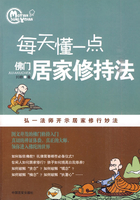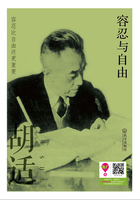With all these political developments the interests of religion and of the Church were closely connected. Even though it be admitted that in themselves there is no real opposition between Nationalism and Catholicism, yet in the circumstances of the time, when national rivalry was acute, the dependence of the Holy See upon any particular nation was certain to excite serious jealousy. From that time nations began to regard the Pope as an ally or an enemy according to the side he favoured instead of looking to him as a common father, and consequently the danger of a conflict between national patriotism and loyalty to the Head of the Church was rendered less improbable. This feeling was increased by the residence of the Popes at Avignon, when the Holy See was so completely associated with the interests of France, and by the policy pursued by Sixtus IV. and his successors in regard to the Italian States. Nowhere, however, was this opposition to the Papacy manifested more clearly than in Germany. This was due partly to the growing feeling of antipathy between the Teutonic and the Latin races, partly to the tradition of the great struggle of the thirteenth century in which the Emperors were worsted by the Popes, and partly also to the discontent excited amongst all classes of the German people, lay and cleric, by the taxations of the Curia. The attitude of the three ecclesiastical electors in 1455, the complaints of the clergy in 1479, and the list of /Gravamina/ presented to Maximilian in 1510 were harbingers of the revolution that was to come.
Besides, the growth of absolutism in Europe was likely to prove dangerous to the liberties of the Church. Rulers, who aimed at securing for themselves unlimited authority, were not blind to the importance of being able to control the ecclesiastical organisation, and to attain this result their legal advisers quoted for them the maxims of the old Roman Code, according to which the king was the source of all spiritual as well as temporal power. Their predecessors had usurped already a strong voice in the appointments to benefices, but now civil rulers claimed as a right what those who had gone before were glad to accept as a privilege. Hence they demanded that the Holy See should hand over to them the nomination of bishops, that it should modify the old laws regarding exemption of ecclesiastical property from taxation, trial of clerics, and right of sanctuary, and that it should submit its pronouncements for the royal /Exequator/ before they could have the force of law in any particular state. The Pragmatic Sanction of Bourges (1438) and the Concordat wrung from Leo X. by Francis I. of France in 1516, the Concordat of Princes in 1447, and the new demands formulated by the Diet of the Empire, the Statutes of /Provisors/ and /Praemunire/ in England (1453), and the concessions insisted upon by Ferdinand and Isabella in Spain (1482), were clear proofs that absolutism was destined to prove fatal to the liberty of the Church and the authority of the Holy See.
Finally, the universal discontent of the masses, and the great social revolutions of the first quarter of the sixteenth century were likely to prove dangerous to ecclesiastical authority. In all revolutions the most extreme men are certain to assume control at least in the earlier stages of the movement, and their wildest onslaughts on Church and State are sure to receive the applause of the crowd. But there was special danger that these popular outbreaks might be turned into anti-religious channels at a time when so many of the bishops were secular princes, and when the Church appeared to be so closely identified with the very interests against which the peasants took up arms. In these circumstances it was not difficult for designing men to push forward their plans of a religious reform under guise of a campaign for liberty and equality.[2]
[1] /Cambridge Modern History/, ii., p. 176. Janssen, op. cit., Eng.
Trans., ii., chap. ii.
[2] Janssen, op. cit. Eng. Trans., vols. i.-iii. Pastor, op. cit., Eng. Trans., vols. i.-iii.
(c) The Religious Condition of Europe.
Pastor, op. cit. Janssen, op. cit. Creighton, /History of the Papacy from the Great Western Schism to the Sack of Rome/, 2nd edition, 1897. Ranke, /Die Romische Papste im 16 und 17jahrhunderten/ (xxxvii-xxxix), 1900 (Eng. Trans., 3 vols., 1866).
Haller, /Papsttum und Kirchenreform/, 1904. Mansi, /Sacrorum Conciliorum Collectio/, 1900. Hefele, /Conciliengeschichte/ 2 auf.
1873-90 (Eng. Trans. in part, French Trans.). Imbart de la Tour, /Les origines de la Reforme/, ii., 1909. Thomas, /Le Concordat de 1516/, 1910. Ullman, /Reformatoren vor der Reformation/, 1866(Eng. Trans. by Menzies, 1855).
The withdrawal of the Popes from the capital of Christendom and the unfortunate schism, for which their residence at Avignon is mainly responsible, proved disastrous to the authority of the Holy See. The Avignon Popes were Frenchmen themselves. Their cardinals and officials belonged for the most part to the same favoured nation. They were dependent upon the King of France for protection, and in return, their revenues were at times placed at his disposal in order to ensure victory for the French banners. Such a state of affairs was certain to alienate the rulers and people of other nations, especially of Germany and England, and to prepare the way for a possible conflict in the days that were to come.














